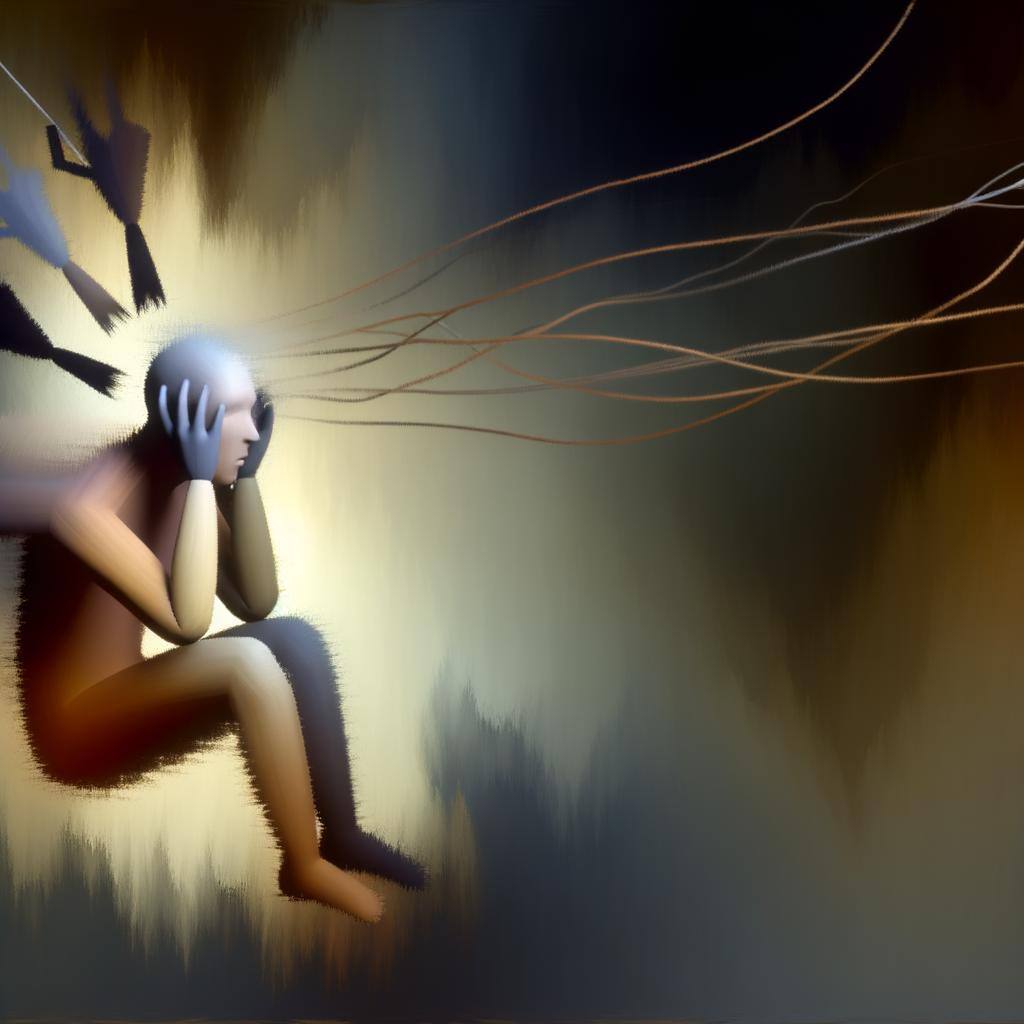Can B12 Deficiency Cause Balance Problems?
Can B12 deficiency cause balance problems? Can it cause issues like dizziness or what's known as ataxia? Yes B12 is important for a lot of different neurological functions. It's important specifically in the nervous system for myelin sheath production which allows for nerve impulses to be conducted through out the nervous system. In this article we will look at a specific case report of B12 deficiency that caused some of these symptoms. We will also look at the findings on MRI and physical exam and how B12 deficiency was responsible for those findings.
If you are interested in learning more about the role of B12 deficiency and balance, keep reading.
B12 Deficiency And The Nerves
Yes b12 deficiency can cause balance issues because of its role in the nervous system. B12 is a vital nutrient critical for many functions. It is needed for the production of red blood cells but B12 is needed for production of any cell. B12 is also a critical nutrient for gastrointestinal function and the absorption of nutrients. It also plays a role in neurological and psychiatric aspects of our body. Therefore when there is a B12 deficiency, it can cause problems in any of these areas. When it comes to balance, of course, B12 deficiency is involved because of its role in the nervous system.
Of all the possibilities of where B12 deficiency shows up, many times the initial presenting symptom is neurological in nature. When you are deficient in B12 for long enough the body doesn't have enough B12 to go around for all of these different functions in the body. This is when symptoms start to manifest. When it comes to the nerves and nervous system, B12 is needed for the production of myelin sheath. Myelin sheath is like an outer coating of the nerve that allows for proper conduction of the nerve impulses. You can think of it like a wire with an outer plastic coating. If there is no plastic coating, you might get more short circuits. Similarly if you have B12 deficiency this can lead to a decrease in the nerve conduction, weird sensations, or sensations that are out of place. The myelin allows for conduction of signals from any part of your body to the spinal cord to your brain and vice versa. So the odd sensations can happen in your legs and your arms or even more centrally in the spinal cord itself. Let's look at some case examples so we can better understand how B12 deficiency balance problems might manifest.
Case Study of B12 Deficiency and Balance Problems
The information on this case of B12 deficiency and balance problems is coming from a case report that was published and you can find here. This case report describes five different neurological manifestations of B12 deficiency. In all five cases the laboratory, imaging, and clinical history were compatible with the diagnosis of cobalamin deficiency. As a side note, cobalamin is another way to say B12. So B12 deficiency and cobalamin deficiency are synonymous. In all five cases the B12 deficiency symptoms resolved with administration of B12 injections. Now let's look at some specific cases related to B12 deficiency and balance problems.
Two of the patients in this case report presented with what the authors describe as posterior-lateral cord syndrome causing gait ataxia. One of the two had a more acute case with sensory gait ataxia. First let's look at what is ataxia.
Ataxia is an impairment in coordination. This impairment can happen for many reasons like a lack of proper impulses from the brain to the hand. Imagine if you are not be able to hold a cup because you can't quite feel it. In this case the nerves that transmit the feelings when you touch it aren't getting transmitted up to the brain. This is similar to what can happen with B12 deficiency. So let's look closer at one of these cases to better understand how B12 deficiency causes coordination and balance problems.
This case is an eighteen year old patient with difficulty walking. The authors describe a slippage of foot wearing without knowledge. The patient's shoes are slipping off without her recognizing it. Her physical exam also shows that the patient has impaired joint position in the lower limbs. So she didn't know the positioning of her joints in space. She had nothing neurological wrong in the upper limbs. She also had positive Romberg sign. The Romberg test is used to evaluate the causes of motor coordination loss also known as ataxia.
The Romberg test is performed by simply closing your eyes while in a standing position. The observer looks to see if you have a loss of balance or start to sway. If you have normal proprioception, you won't have any dizziness. Proprioception is the signal from the brain to the joints and from the joints back up to the brain. If this proprioception signal is uninterrupted you will have dizziness or imbalance when you close your eyes. She did have dizziness. When this patient had an MRI it showed she had posterior lateral syndrome. What does that mean? This occurs when there's an interruption in the sensory signal coming from the brain back to the muscle. In her case, the lack of B12 contributed to the loss of myelin sheath in the spinal nerves that transmit this signal. This demyelination can be seen on the MRI visually because the myelin contributes to the bulk or mass of the nerves. Demyelination from B12 deficiency can occur anywhere but it tends to manifest itself in the posterior cord region. This is a specific area in the spinal cord where spinal nerves that transmit signals about sensation to the brain. This problem can manifest as lack of sensation really anywhere in the body.
Resolving Balance Problems From B12 Deficiency
In this case parenteral or injection of cobalamin was given in the form of one thousand micrograms of B12 called cyanocobalamin. I typically don't recommend this kind of B12. However if you really need it and you are really low in cobalamin the cyanocobalamin will work. Typically I would advocate for hydroxy or methyl cobalamin. She received the B12 injections intramuscular daily for the first seven days. Then she received them weekly for four weeks. After this she went to once monthly. She was also advised to eat a diet that was a little more rich in B12. She showed marked improvements in the first few days of treatment. At the one month follow-up she was completely relieved of these signs and symptoms.
From my own clinical experience treating patients with B12 deficiency, balance problems are some of the initial presenting symptoms of deficiency. Some people describe it as dizziness. Other times they describe it as just feeling like a bit out of it when they're walking or moving. Or they almost feel like they are going to run into the wall or something like that. It can present itself in a lot of different ways. I have seen several cases of B12 deficiency causing dizziness that resolved after their B12 levels were repleted.
That should explain how B12 deficiency can cause balance problems and how to resolve it. If you have questions or comments about anything noted here, please drop it in the comment section below. If you need help managing B12 deficiency or other vitamin nutrition related problems, click n the link below to get started.





















